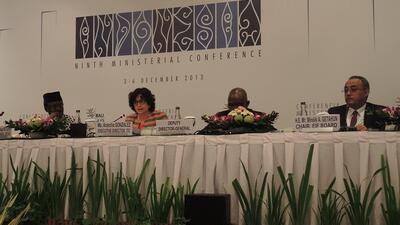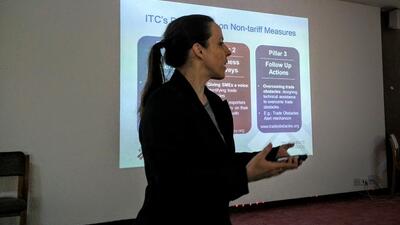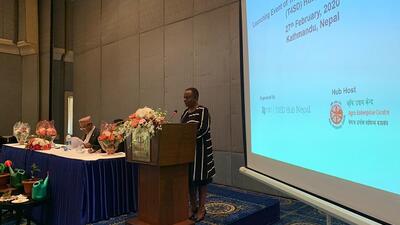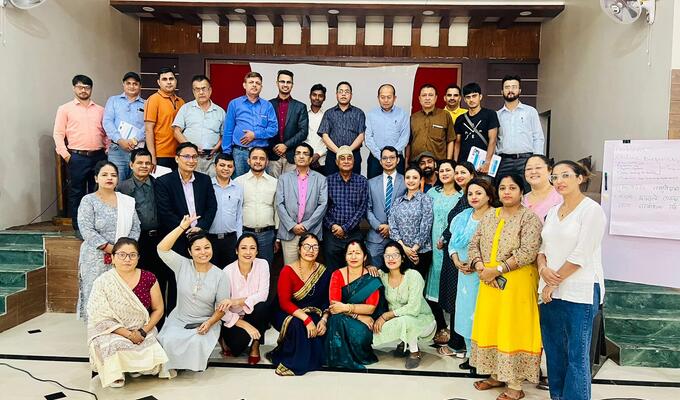
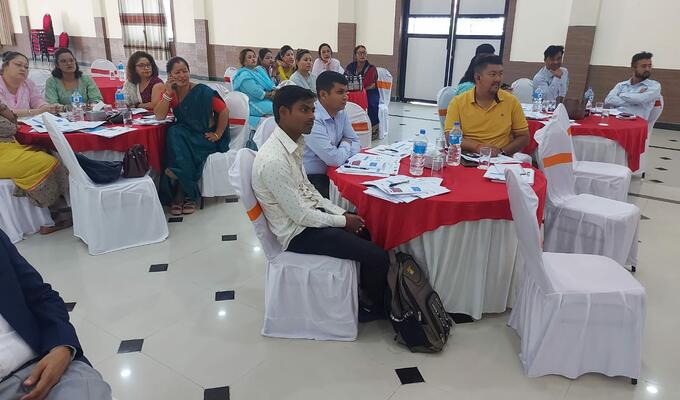
Entrepreneurs in Nepal set to benefit from trade facilitation reforms
ITC training enables Nepalese entrepreneurs to benefit from WTO Trade Facilitation Agreement
Bishnu Maya Sharma Poudel, a bakery entrepreneur in Lumbini Province in Nepal, has regularly been facing hurdles at customs points while importing raw materials from India. As she didn’t know about the customs processes and her own rights as an entrepreneur, she has been facing delays in getting clearance.
This is about to change. A training that targeted local entrepreneurs in Nepal turned out to be an eye-opener for participants like her. “I suffered a loss a while back when the customs office blocked cream I imported from India because the import of cream was then allowed through dealers only. I now learned that we have rights under specific measures related to the WTO Trade Facilitation Agreement,” she said.
Bishnu attended the International Trade Centre’s two-day capacity enhancement training on the World Trade Organization’s Trade Facilitation Agreement (TFA) to learn about these regulations. She is among the 15 women of the 49 participants. The training supported the entrepreneurs with TFA-related measures as they resolve cross-border inefficiencies and reduce the time and cost when engaging in international trade.
Arjun Kanauje, a vegetable farmer, who was also conferred by the Nepal government with the ‘President Best Farmer Award’ in 2013, said: “During the interaction, we had the opportunity to learn about various aspects of the TFA and its benefits. But there is still a long way to go. The local government is ready to play its part in expediting the implementation of this Agreement,” said Arjun, who is also a local people’s representative.
Nepal’s private sector appreciated the training initiative. Krishna Prasad Sharma, President of Lumbini Province Chambers of Commerce and Industry said: “This training is useful for those who have been facing difficulties in the customs clearing process. We can bring down the cost of production and selling price, strengthen our competitive edge in international markets and make a greater contribution to national revenue if customs clearance is simplified.”
The training was also instrumental to encourage the private sector to become part of the TFA implementation process itself. Sharma also underlined the need for tripartite efforts involving the government, relevant international agencies, and the private sector to create a conducive environment for effectively implementing the TFA provisions.
The International Trade Centre’s EU-Nepal Trade and Investment Programme (EU-TIP) in partnership with the Ministry of Industry, Commerce, and Supplies, and the Federation of Nepalese Chambers of Commerce and Industry organized the training in mid-September in Bhairawa of Lumbini Province.
The WTO Trade Facilitation Agreement
The TFA entered into force in February 2017 to support greater trade efficiency by targeting administrative barriers to trade.
As entrepreneurs have been facing lengthy border inspections, excessive document and data requirements, manual processes, lack of coordination among border authorities, and complex and inefficient rules and procedures, the implementation of this Agreement is instrumental in curbing trade costs and increasing business competitiveness.
Bhakta Raj Joshi, Under Secretary at the Ministry of Industry, Commerce, and Supplies said, “As a WTO member we are committed to effectively implementing the TFA in national practices with the support from relevant stakeholders. There must be trade education and awareness among both service seekers and service-providing officials to use the TFA for our maximum benefits.”
About the EU-Nepal Trade and Investment Programme
This four-year programme funded by the European Union and launched in February 2020, assists the Government of Nepal in achieving sustainable and inclusive economic growth and poverty reduction by increasing trade and participation in regional and global value chains. Implemented by the International Trade Centre, the project also aids the sustainable and inclusive development of Nepal’s coffee and pashmina value chain, with a focus on export development.







